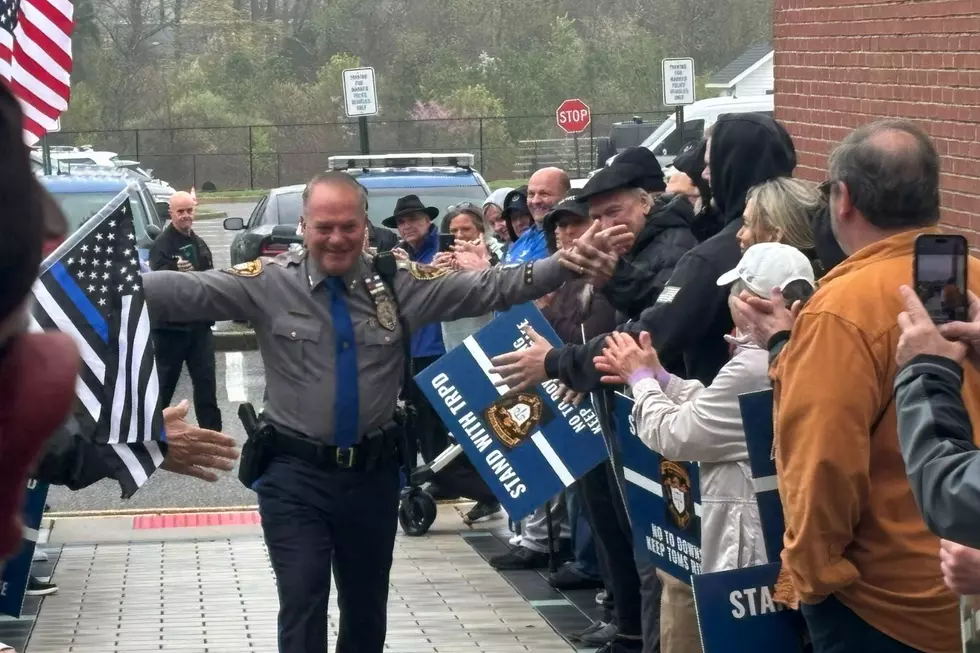
NJ teen gets away with no punishment after judge learns she’s homeless
TOMS RIVER — A 17-year-old shoplifter who no-showed numerous court appearances and skipped her community service got off with no punishment after a state judge learned that she was homeless.
Family Court Judge Deborah Gramiccioni tossed a 30-day community service sentence that she had handed down herself after learning that the troubled teen and her mother were in dire straights.
The teen admitted in court on April 26, 2018, to shoplifting and fourth-degree obstructing the administration of law in exchange for prosecutors dropping charges of aggravated assault, disorderly conduct and rioting.
The charges she admitted to would have been wiped clean after a year if she completed her community service and stayed of out trouble.
But the teen kept missing appointments and court dates — actions that would have resulted in a bench warrant and arrest if committed by an adult.
The case illustrates the difference between adult criminal cases and juvenile cases adjudicated in Family Court, where proceedings and the names of the accused are kept secret. Prosecutors declined to tell New Jersey 101.5 what the teen had been accused of stealing or explain the other violent charges she previously faced because the case was not serious enough to warrant disclosure of any details.
In rare cases, the public gets a view of what goes on when a decision is appealed or overturned by a higher court.
In this case, Gramiccioni issued a public ruling in April to reverse herself after she learned that the law does not require judges to impose community service sentences on juveniles even though the sentence is mandatory for shoplifters.
Gramiccioni’s decision says that forcing the teen to complete the 30 hours of community service “would only impose a significant hardship upon this juvenile, who, simply put, has enough on her plate.”
In a brief interview, Ocean County Prosecutor Bradley Bilhimer said that his office had “no intention of appealing,” saying only, “I understand the decision.”
In the Family Court system, juveniles are not found guilty of crimes. They are adjudicated as delinquent — and they rarely serve time behind bars.
The goal of the juvenile justice system is to rehabilitate youth and judges are required to consider whether a punishment will support family strength and safety and whether it takes into account a juvenile's particular physical, psychological and social characteristics.
During an April 1 hearing in which the teen spoke to the judge by phone, she said that she had been homeless for 12 months.
“It’s hard considering it’s just me and my mom. We don’t get any help. We have to pay for a hotel room every night and that’s not cheap. We have to save money every day to survive,” she was quoted as saying.
A year earlier, probation officials had arranged for her to complete community service at a Manahawkin church but she never showed up. When they placed her at another site, she also never went, court records show.
The teen then proceeded to miss three court hearings. Each time, the judge declined to issue a bench warrant for her arrest, instead ordering court officials to find out where the teen was.
The teen finally appeared with her mother on March 7.
“I’m so happy to see you here, because the last thing the court wanted to do was issue a bench warrant for you to come back here,” Gramiccioni told the young lady. “I am happy that you are here today.”
The teen’s public defender explained that she was willing to complete her community service but the family had been dealing with homelessness.
The judge said she would be willing to “ignore” the community service sentence but she believed that the law mandated that punishment for shoplifting, even for juveniles.
A month later — after the teen had once again missed another court date — Gramiccioni realized that her understanding of the law had been mistaken.
In a written decision, Gramiccioni noted that a state Attorney General's Office guidance to prosecutors in 2001 explained that mandatory terms of community service and incarceration do not apply to juveniles.
Gramiccioni cited previous appellate cases in which the courts found that the juvenile code does not require imposing penalties mandated by laws that apply to adult criminal cases. The courts also have ruled that mandatory sentences don’t apply to cases where charges will eventually be dismissed.
Even when the law mandates a penalty specifically for a juvenile crime, Gramiccioni said a judge can still use discretion in a case where the charges are slated for eventual dismissal.
“This is not to say that the imposition of community service hours in many juvenile dispositions are unwarranted,” Gramiccioni wrote. “In this unique situation, however, the rehabilitative purposes of the Juvenile Code essentially would be thwarted if the court were to insist upon the successful completion of those hours.”
Sergio Bichao is deputy digital editor at New Jersey 101.5. Send him news tips: Call 609-359-5348 or email sergio.bichao@townsquaremedia.com.
More From New Jersey 101.5 FM









